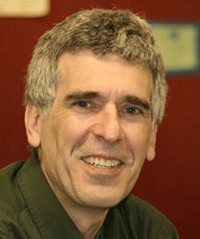Black added: "And on the economic side, they were all in favor of austerity. All in favor of privatization. Tried to do a deal with Newt Gingrich to privatize Social Security. And of course, were all in favor of things like NAFTA."
As for Hillary Clinton's widely heralded "move to the left" in recent months, Black said that it "was purely calculated for political purposes. And all of the team that's going to hire all the key people and vet the key people for the most senior positions for at least the first several years of what increasingly looks likely to be a Clinton administration are going to be picked by these people, who are the opposite of progressive."
In that light, Salazar is a grotesquely perfect choice to chair the transition team. After all of Clinton's efforts to present herself as a foe of the big-money doors that revolve between influence peddlers and government officials in Washington, her choice of Salazar -- a partner at the lobbying powerhouse WilmerHale since 2013 -- belies her smooth words. That choice means the oil and gas industry just hit a political gusher.
On both sides of the revolving doors, the industry has been ably served by Salazar, whose work included arguing for the Keystone XL pipeline. His support for fracking has been so ardent that it led him two years ago to make a notably fanciful claim: "We know that, from everything we've seen, there's not a single case where hydraulic fracking has created an environmental problem for anyone."
Salazar is part of a clear pattern. Clinton's selection of Tim Kaine for vice president underscored why so many progressives distrust her. Kaine was among just one-quarter of Democrats in the Senate who voted last year to fast track the TPP. When he was Virginia's governor, Kaine said that "I strongly support" a so-called right-to-work law that is anathema to organized labor. A few years ago he faulted fellow Democrats who sought to increase taxes for millionaires.
Clinton announced the Kaine pick while surely knowing that many progressives would find it abhorrent. A week beforehand, the Bernie Delegates Network released the results of a survey of Sanders delegates showing that 88 percent said they would find selection of Kaine "unacceptable." Only 3 percent of the several hundred respondents said it would be "acceptable."
The first big post-election showdown will be over the TPP in the lame-duck session of Congress. Clinton's spokesman Brian Fallon reiterated a week ago that "she is against the TPP before the election and after the election." But her choices for running mate and transition team have sent a very different message. And it's likely that she is laying groundwork to convey anemic "opposition" that will be understood on Capitol Hill as a wink-and-nod from a president-elect who wouldn't mind "aye" votes for the TPP.
Blessed with an unhinged and widely deplored Republican opponent, Hillary Clinton may be able to defeat him without doing much to mend fences with alienated Sanders voters. But Clinton's smooth rhetoric should not change the fact that -- on a vast array of issues -- basic principles will require progressives to fight against her actual policy goals, every step of the way.
(Note: You can view every article as one long page if you sign up as an Advocate Member, or higher).





